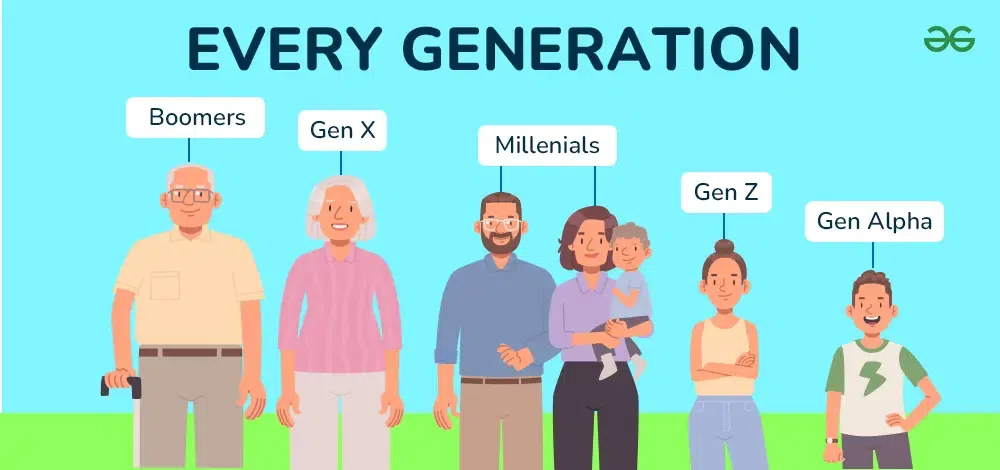Kids born in 2013 are growing up in a world that’s fast, digital, and always changing. These children are part of what’s called Generation Alpha, the first group to be born entirely in the 21st century. While we often hear about Millennials or Gen Z, the spotlight is now shifting to this younger crowd.
They’ve never known a world without iPads, voice assistants, or YouTube Kids. Their everyday lives are shaped by technology, global news, and social media—even if they’re not using it directly yet. This article breaks down what makes the 2013 generation unique, the challenges they face, and what their future might look like.
Understanding the Generational Label
What Generation Does 2013 Fall Into?
The year 2013 falls under Generation Alpha. This generation started with kids born in 2010 and will include those born up until around 2024–2025. Unlike Gen Z, who were raised during the rise of the internet, Generation Alpha is being raised in it.
Why “Alpha” and What Does It Mean?
After Gen Z, the Greek alphabet was used to name the next era. Alpha marks a fresh start—a new wave of kids growing up with artificial intelligence, virtual reality, and remote learning as normal parts of life.
Key Traits of the 2013 Generation
Early Tech Exposure
Children born in 2013 are growing up with screens in their hands. Tablets, smart speakers, and even interactive toys are part of their daily routines. This kind of access boosts digital skills early, but it also raises concerns about attention span and focus.
Hyper-Connected Learning
They’re used to learning through apps, online videos, and interactive games. Traditional learning methods are being combined with digital tools, making classrooms more flexible—but also more dependent on tech.
Emotional Intelligence and Empathy
Today’s kids are being taught about feelings, mindfulness, and kindness more than any previous generation. They often see parents and teachers talking about mental health, diversity, and social equality, which shapes how they treat others.
Problems Faced by the 2013 Generation
Too Much Screen Time
One big problem for Generation Alpha, especially those born in 2013, is the heavy use of screens. While they learn fast with digital tools, too much screen time can hurt sleep, focus, and even social skills.
American Academy of Pediatrics suggests limiting screen time for young children. But in a world filled with smartphones and tablets, that’s easier said than done.
Learning in a Post-Pandemic World
These kids were just starting school when the COVID-19 pandemic hit. Many had to learn from home, missing out on classroom interaction. This led to setbacks in reading, socializing, and even emotional growth.
Growing Up in a Loud World
From climate change to global conflicts, the 2013 generation is exposed to a lot of heavy topics at an early age. Even if they don’t fully understand them, the stress and tension in the world around them can affect their emotional health.
How 2013-Born Kids Are Being Raised
Focus on Positive Parenting
Parents today are using more gentle parenting techniques. This means fewer punishments and more conversations about choices and emotions. The goal is to help kids become confident, thoughtful, and kind.
Digital Boundaries
Families are trying to find a balance between using tech for learning and keeping kids active offline. Setting screen time rules and encouraging outdoor play are becoming common goals in households with Alpha kids.
Encouraging Independence
Because of their access to information, 2013 kids ask a lot of questions. Parents are helping them think independently by giving them choices and letting them explore hobbies and interests early on.
The Future Outlook for Generation Alpha
What Jobs Will They Work?
The jobs these kids will do haven’t even been invented yet. With trends in robotics, AI, climate science, and remote collaboration, the 2013 generation needs to build skills in creativity, tech, and problem-solving.
Education That Fits Them
Schools are shifting from old-fashioned methods to more tech-driven, personalized learning paths. Expect more virtual reality field trips, AI tutors, and custom lesson plans in their future.
Mental Health Will Be a Priority
Unlike past generations, the importance of mental wellness is being taught early. By the time 2013-born kids are adults, taking care of their mind will be as normal as brushing their teeth.
Conclusion: Why the 2013 Generation Stands Out
Kids born in 2013 are part of a powerful and promising generation. As members of Generation Alpha, they’re growing up faster, smarter, and more connected than any group before them.
But this also means they’ll face unique challenges—from screen addiction to global uncertainty. With the right support, education, and care, the 2013 generation can lead with empathy, innovation, and strength.
Their journey is just beginning, and the world is watching.

